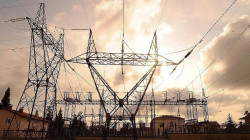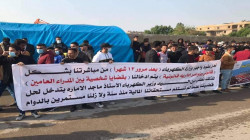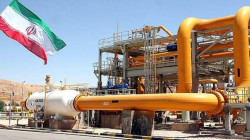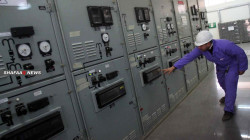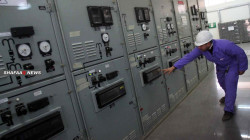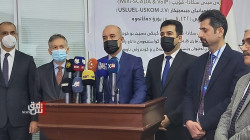Basiyah's Journey: Overcoming decades of challenges for electricity and safety
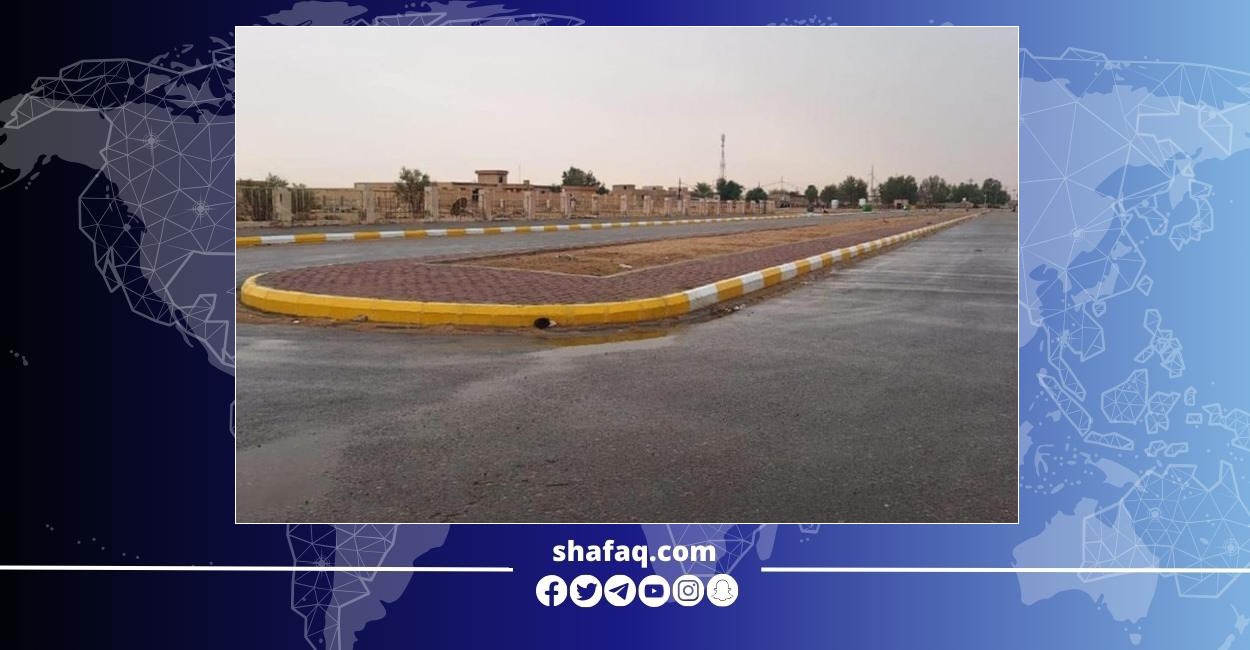
Shafaq News / For 66 years, the town of "Basiyah", located within Al-Salman district in Muthanna governorate, has been without an electricity grid. Instead, it relies on generators to provide electricity. At the same time, its residents face risks due to the presence of war remnants and cluster bombs scattered across a 150 km area from Al-Salman desert to the borders of the town.
An exile for Kurdish opponents
Established in 1958, Basiyah is situated in the heart of the desert, adjacent to the Iraqi-Saudi border. Located approximately 300 km away from the provincial center, it ranks among the largest districts in the country, spanning an area of 48 thousand square kilometers. Since its establishment, Basiyah has not witnessed the provision of electricity to its population, exceeding 10 thousand people.
The residents of this district are divided into two sections: urban, centered around the city, and the nomadic Bedouins in the vast desert. The majority of the population in the desert relies on animal husbandry, particularly camels, according to Tawfiq Jaber Al-Hassani, the director of Basiyah district.
Al-Hassani further explaned that before 2003, the district served as an exile for those who opposed the previous regime. It housed prisons for Barzani Kurds, and their remains were discovered in four mass graves between 2005 and 2010, estimated to be around 400 individuals. The district also held detainees from Dujail and Balad after the assassination attempt on Saddam Hussein in 1982.
A timid revival since 2004
After 2003, Basiyah district began to reemerge, witnessing reconstruction projects despite limited allocations. Agriculture in the area also regained momentum, particularly wheat cultivation, which has grown in recent years to exceed 600 thousand dunams, entirely relying on groundwater.
According to Al-Hassani, industrial activity is not absent from the district, and recently, four investment licenses were granted to establish cement factories, due to the availability of raw materials in the desert.
The district also boasts schools for elementary, middle, and high stages but lacks universities, prompting students to pursue higher education in nearby governotes.
Several essential projects are still lacking in the district, notably a road network connecting it to neighboring governorates. Moreover, there is a project to connect the district to the national power grid through a 132 KV transmission line, representing a qualitative leap in the district's development, according to Al-Hassani.
Additionally, the district’s residents consistently appeal for the delivery of electricity, which would contribute to reviving hundreds of thousands of agricultural dunams, promoting livestock development, enhancing food security in the governorate, and, simultaneously, clearing mines planted along those areas up to the Saudi border from remnants of previous wars.
A projected surge in two months
In July 2022, the Ministry of Electricity and Muthanna governorate laid the foundation stone for the project to extend electricity to Al-Salman district and Basiyah, covering a distance of 220 km. The project's cost exceeds 80 billion Iraqi dinars, with a completion period exceeding one year.
At that time, Minister of Electricity Adel Karim stated that his ministry had taken serious steps to bring national electricity to Al-Salman district and Basiyah after more than 60 years since their establishment as administrative units. He emphasized that both regions relied on government electricity generators.
Hamed Jihad Al-Hasani, the Assistant Governor of Muthanna for Energy Affairs, provided details on the project, stating, "The line is 92 km long, with 291 towers, a design capacity of 500 MVA, and the current completion rate is over 75%. It is expected to be operational by March 15, 2024."
Al-Hasani emphasized that work is ongoing continuously to bring electricity to Basiyah and Al-Salman district, both of which have not experienced national electricity since their establishment and have relied on government-operated generators instead.
It is noteworthy that in January 2023, the Civil Defense Directorate in Muthanna announced the commencement of a campaign to clear the path of the electricity lines project in the Basiyah desert from war remnants, handing it over to the project's executing company to install cement foundations for the towers.
A Pioneering struggle
Muthanna stands out as Iraq's most polluted region with landmines, with a significant number scattered across a 150 km stretch from Al-Salman Desert to the borders of Basiyah, according to statistics from the Muthanna Environment Directorate.
Local authorities document numerous incidents in this vast desert, constituting 90% of the governorate’s total area, resulting in casualties among sheep herders, residents, nomads, and fishermen who are often unaware of the types of cluster remnants. The casualties from war remnants have reached 3,700 people from 1991 to the previous year, 2023.
The contamination from war remnants is 25% of the area in Basiyah, with concentrated mines in areas such as Abu Ghar, Al-Habariya, Al-Judaa, … etc., as reported by Ahmed Hamdan, Deputy Head of the Environmental Protection and Biodiversity Organization in Muthanna.
Jameel Nafi’, a resident of Basiyah, stated, "The region is known for animal husbandry and agriculture, but since the 90s war, it has been polluted with many mines and cluster munitions, which are still present today, despite their direct threat to individuals."
Nafi’ added that "Civil Defense, military engineering, and the Norwegian People's Aid organization are working diligently to address this problem, which claims the lives of more than 10 people annually."
Furthermore, Iraq is classified among the most polluted countries due to the proliferation of landmines and explosive devices, a consequence of the Iraq-Iran war in the 1980s and the impact of ISIS occupation in Iraqi territories, according to Jassim Al-Falahi, Ministry of Environment’s Deputy Technical Minister.
